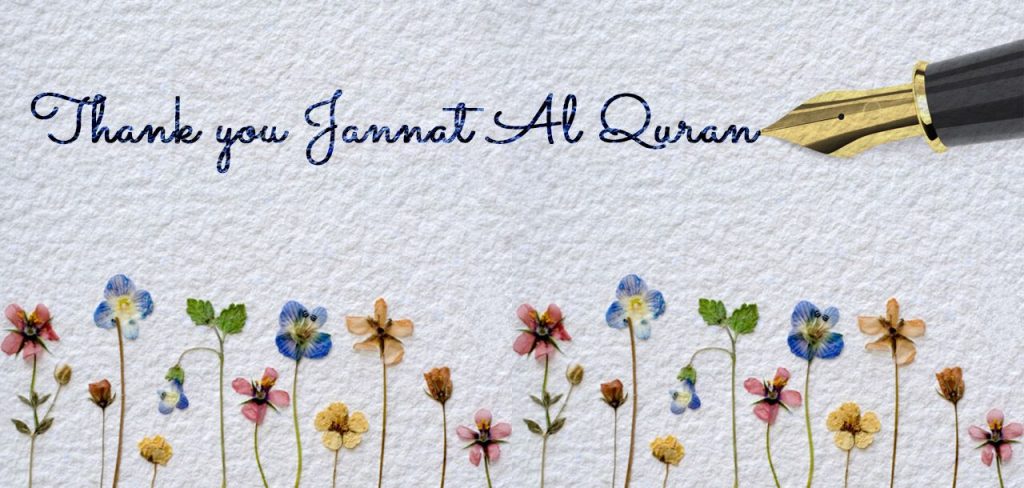In a world overwhelmed by grudges and anger, forbearance (Al-Afu) stands as a noble light guiding hearts to peace, Jannah, and the Mercy of Allah. Forbearance (Al-Afu) is among the highest morals; it is a reflection of strong Eman, and a manifestation of obedience to Allah and His Prophet Muhammad (ﷺ). It is known that the highest morals are considered a great gate to Jannah, the good character can lead its owner easily to Jannah. Forbearance is also a proof of how longingly the self is trained in patience and forgiving. No one can truly show forbearance if he is not patient enough. After practicing strong patience as a Muslim, the power of forbearance can overcome hatred and anger. Forbearance means forgiving and giving up on executing punishment or revenge. Allah called Himself ”ٱلْعَفُوُّ” (The Oft-Pardoning, The Effacer of Sins, and The Eliminator of Sins), which refers to the power to forgive. And He ordered His Prophet Muhammad (ﷺ) to forbear and forgive. Allah said in Surah Al-Imran:159,
”So by mercy from Allah, [O Muhammad], you were lenient with them. And if you had been rude [in speech] and harsh in heart, they would have disbanded from about you. So pardon them and ask forgiveness for them and consult them in the matter. And when you have decided, then rely upon Allah. Indeed, Allah loves those who rely [upon Him]”.
(فَبِمَا رَحْمَةٍ مِّنَ اللَّهِ لِنتَ لَهُمْ ۖ وَلَوْ كُنتَ فَظًّا غَلِيظَ الْقَلْبِ لَانفَضُّوا مِنْ حَوْلِكَ ۖ فَاعْفُ عَنْهُمْ وَاسْتَغْفِرْ لَهُمْ وَشَاوِرْهُمْ فِي الْأَمْرِ ۖ فَإِذَا عَزَمْتَ فَتَوَكَّلْ عَلَى اللَّهِ ۚ إِنَّ اللَّهَ يُحِبُّ الْمُتَوَكِّلِينَ)
The word of forbearance (Al-Afu) was mentioned in the Quran, including its derivations, around 37 times. Whether the core of the topic is Allah, His messengers, or an order uttered by Allah to Muslims, it refers to forgiveness and facilitating people’s affairs. Allah said to His Prophet Muhammad (ﷺ) in Surah Al-Araf:199,
”Take what is given freely, enjoin what is good, and turn away from the ignorant.”
خُذِ الْعَفْوَ وَأْمُرْ بِالْعُرْفِ وَأَعْرِضْ عَنِ الْجَاهِلِينَ
The word of Al-Afua in this Ayah is broadened to cover different meanings aside from forgiveness, such as being easy with people, and overlooking their shortcomings. When a Muslim refuses to be so attentive to people’s errors, he is characterised with forbearance. Nowadays, people are compelled to endure a harsh life and exert huge efforts to meet their requirements and needs. The stressful life we live pushes people to be less caring or flexible. For that reason, Allah made forbearance a reason to Jannah on the Day of Judgment. We can not say someone is charactrised with forbearance unless it is tested. His nerves must be under significant pressure, and see how his ability to forbear will come to the surface. It was reported that;
Jabir reported God’s Messenger as saying,
“God show mercy to a man who is kindly when he sells, when he buys, and when he makes a claim!”
In this prophetic Hadith, the Prophet Muhammad (ﷺ) explained that the sphere of forbearance goes beyond mere forgiveness; it extends to the matters of commercial transactions. When you sell, buy, offer trade or pardon, make things easy for people, and accept their slips. Another example of how a Muslim can show the real power of forbearance is what happened with the great companion, Sayyiduna Abu Bakr in the Incident of Ifk. He used to give money in charity to Mistah ibn Uthaathah because of his relationship with him and his poverty. After Mistah ibn Uthaathah got involved in the accident of Ifk and the rumors said about Lady Ayisha, he said ‘By Allaah, I will never give to Mistah ibn Uthaathah anything after what he has said about ʻAa’ishah.’ But Allah revealed and said in Surah An-Nour, Ayah 22,
”And let not those of virtue among you and wealth swear not to give [aid] to their relatives and the needy and the emigrants for the cause of Allah, and let them pardon and overlook. Would you not like that Allah should forgive you? And Allah is Forgiving and Merciful.”
وَلَا يَأْتَلِ أُولُو الْفَضْلِ مِنكُمْ وَالسَّعَةِ أَن يُؤْتُوا أُولِي الْقُرْبَىٰ وَالْمَسَاكِينَ وَالْمُهَاجِرِينَ فِي سَبِيلِ اللَّهِ ۖ وَلْيَعْفُوا وَلْيَصْفَحُوا ۗ أَلَا تُحِبُّونَ أَن يَغْفِرَ اللَّهُ لَكُمْ ۗ وَاللَّهُ غَفُورٌ رَّحِيمٌ
Allah orders us through this Ayah not to let our rage or anger stand between us and doing goodness to people, especially those who caused harm. Allah made a great reward for people who forbear, He said in Surah Al-Imran:133
And hasten to forgiveness from your Lord and a garden as wide as the heavens and earth, prepared for the righteous.
وَسَارِعُوا إِلَىٰ مَغْفِرَةٍ مِّن رَّبِّكُمْ وَجَنَّةٍ عَرْضُهَا السَّمَاوَاتُ وَالْأَرْضُ أُعِدَّتْ لِلْمُتَّقِينَ
In the next Ayah, Allah explained who the righteous are,
”Who spend [in the cause of Allah] during ease and hardship and who restrain anger and who pardon the people – and Allah loves the doers of good.”
الَّذِينَ يُنفِقُونَ فِي السَّرَّاءِ وَالضَّرَّاءِ وَالْكَاظِمِينَ الْغَيْظَ وَالْعَافِينَ عَنِ النَّاسِ ۗ وَاللَّهُ يُحِبُّ الْمُحْسِنِينَ
Thus, forbearance is a great act of goodness that interacting with people daily based on its basis will inshaAllah, lead its owner to Jannah and the Forgiveness of Allah!



Your content never disappoints. Keep up the great work!
thank you
This was very well laid out and easy to follow.
thank you
This was incredibly useful and well written.
thank you so much